“You get the change you have the power to demand”: organising for LGBTQ+ inclusion in the Baptist Church
“You get the change you have the power to demand”: organising for LGBTQ+ inclusion in the Baptist Church
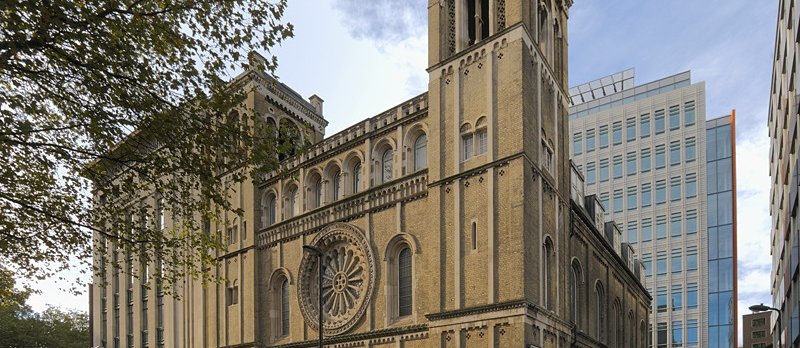
Revd. Dr Simon Woodman and Revd. Dawn Savidge are ministers at Bloomsbury Central Baptist Church, part of West London Citizens. For Pride month, we spoke to Simon and Dawn about their experiences organising for local change in their own church’s leadership, and national change around LGBTQ+ inclusion.
Could you talk a bit about your role at Bloomsbury Central Baptist Church and your background with Citizens UK?
Simon: I’m Simon Woodman, I’m the minister here. I’ve been here for over eleven years now and provide overall leadership and direction for the church, pastoral care, preaching and other ministry-types of activity. In terms of LGBTQ+ inclusion, I relate to this as a straight ally – Bloomsbury already had a long history of LGBTQ+ inclusion which long predates me being here. But after I’d been here a couple of years, the law changed on same-sex marriage and Dawn and I were instrumental in leading the church, with our former colleague, to becoming the first Baptist church in the country to conduct a same-sex wedding, which Dawn conducted. So we position ourselves as a church where all are welcome and we try very hard to ensure there are no barriers to that.
I’m on the leadership team of West London Citizens, even though we're in that strange geographical borderland where in terms of postcode we're Camden, but in terms of all of our church relationships, we're Westminster, so it took us some time to figure out how organising related to our local community. We’re working on embedding organising more in the congregation and that’s an area of real interest for us – how to get people involved in collaborative social justice beyond the church.
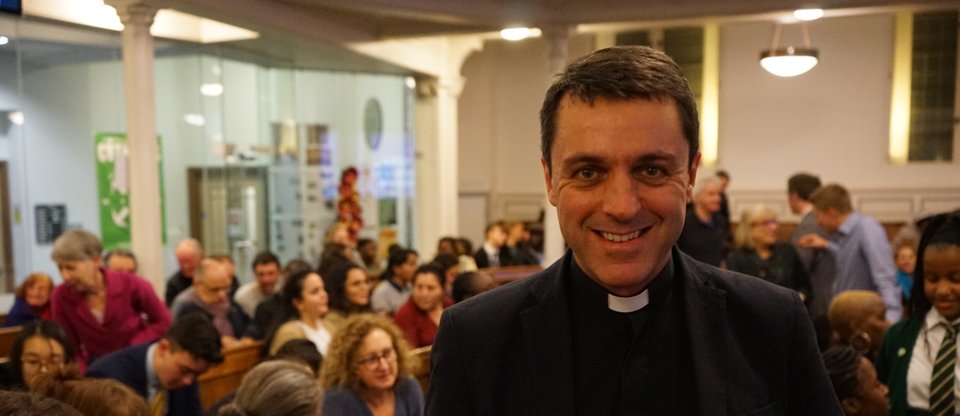
Dawn: I am the Reverend Dawn Savidge, I am a Communities Minister at Bloomsbury Central Baptist Church. My focus, essentially, is looking outwards – I do creative ministry and I’ve traditionally done a lot more work with those affected by homelessness in the local community and the LGBTQ+ community. I was a big part of Christians at Pride for a number of years, and I’ve taken a break since I had kids. I myself am pansexual and still do a lot of work with Baptists on the conversations around LGBTQ+ issues and same-sex marriage. I’m co-director of a Baptist LGBTQ+ charity and also a tutor for LGBTQ+ inclusion at the Northern Baptist College in Manchester.
I was initially hesitant about getting involved in organising. I think, probably as a Baptist, I had a discomfort with power. I went on six-day community leadership training with Citizens UK and I could see that the organising model worked and thought it was fantastic, but I had a deep discomfort with doing it and figuring out how to make it work somewhere like Bloomsbury. As Simon touched on, our congregation comes from all over London – most travel at least half an hour to get to us, the rest more. So trying to figure out how to do organising in a way that was going to be relevant to us felt hard – which I think is why we looked internally first, to ask ‘how can we use the principles of organising to start strengthening the church community?’
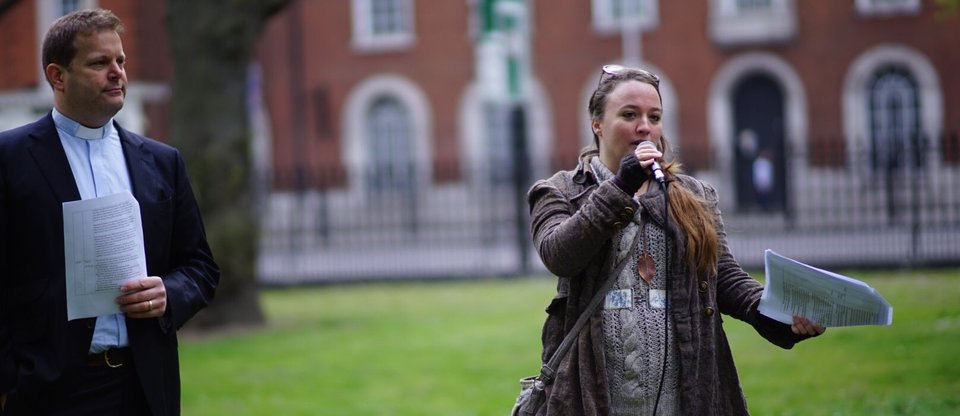
So how did you apply organising principles to your own church?
Dawn: Firstly, we did a power analysis, looking at who held power in our community, and it was really successful. We managed to shift power and get newer voices and younger voices into positions of leadership in the church.
Simon: The local organiser at the time sat down with us and helped us plot people in our church on a chart – their openness to change, their resistance to change; high structural power and low structural power. And what we realised is that the people with high structural power had high resistance to change, and people with openness to change lacked structural power. So we knew we needed to change how we were thinking about leadership, and give people the room to grow into leaders.
We had conversations with people who had been in leadership of the church for decades and asked them, ‘why aren’t you allowing someone else to lead?’ And very often they said, ‘there’s nobody suitable to come up behind me’. Over time, we changed that conversation so people felt comfortable creating a vacuum into which someone else could step and accept the new leaders will do things differently, but that it was important to live with that.
We did have some people step out of leadership as a result, and we have multiple women of colour and LGBTQ+ people in our leadership team now. This came directly out of Citizens’ training with a view to trying to make the leadership here more representative of the diversity of the community.
There are other people in the church that agree with you. What you need to do is get all of them in a room and start having that conversation and think about what you can do together.
Dawn: We’ve also been able to help people in the wider Baptist union use organising principles in their own churches. Recently, we had a conversation with a young woman who's struggling in a church that's very conservative and we said to her, ‘well, actually, there are other people in the church that agree with you. What you need to do is get all of them in a room and start having that conversation and think about what you can do together. Because at the moment, it's just you and your voice. You need to go to your minister with seven of you, not just yourself.’
What has been the importance of building relational power in progressing national LGBTQ+ inclusion work?
Dawn: Going back 8 years ago now, we had a colleague who was putting on an event about LGBTQ+ inclusion and he was somewhat of a lone voice in the Baptist community talking about this at the time. And he posted about it online and got a lot of backlash. A few of us tried to defend him but we then felt we needed a space that was affirming and so we created a Facebook group for LGBTQ+ affirming leaders in the Baptist community. It was a very pastoral response for me, to create a safe space for our friend, but it gave us a better sense of who was out there and shared our views.
Simon: For me, it was also a conscious decision to try and work out what power we had. At this time, Dawn and I were relatively recently off the back of our training, and we could hear ‘you get the change you have the power to demand’ ringing in our ears. And we didn’t know what the strength of LGBTQ+ affirming opinion was within the Baptist world, which is a predominantly conservative, evangelical tradition that takes a traditional understanding of marriage, for example. So I thought, ‘let's try and see what power we've got because there might be ten or there might be hundreds of us’. There are 478 of us in that group at the moment.
That was the first time somebody who was openly queer was put forward for presidency. And it changed the game.
How has that relational power helped you make change on national LGBTQ+ inclusion?
Dawn: I got nominated for presidency within the Baptist Union for one year. And we got the nomination via organising – either a local association has to nominate you, or there’s this old rule that everyone's forgotten about because no one's ever used it, where you get 25 ministers to nominate you. And by this point, we had a couple of hundred LGBTQ+ affirming ministers in the group and so we asked, ‘are there 25 of you willing to nominate Dawn to be president?’ So I was nominated and it was a real eye opener. Some people were quietly inclusive and suddenly, there was me, a queer woman standing up and she's been nominated by 25 people and her nomination profile video has got other queer people telling them how great, how inclusive and pastoral I am and straight ministers going, ‘yeah, Dawn’s really good’.
Simon. That was a very carefully thought-through action of putting up Dawn, who wasn't going to get elected for various reasons, but was willing to speak out publicly about her own sexuality. The group mirrored the classic organising tactic of negotiation and action – we have people in the group who are negotiating with the powers that be behind the scenes, and every so often we take public action like Dawn did by standing for President to get a reaction.
And that was the first time somebody who was openly queer was put forward for presidency. And it changed the game.
Dawn: It really did. We’ve since had multiple straight presidents of the Baptist Union who are openly LGBTQ+ affirming. It’s opened the door for people willing to take on a national leadership role to be more publicly affirming.
But also I then had a number of ministers who would come to me and go, ‘I've had people who have been in my congregation for years just come out to me that I didn't know were gay. And they've done so because I told my church I was voting for you. And so therefore they've realized that I'm a safe person.’
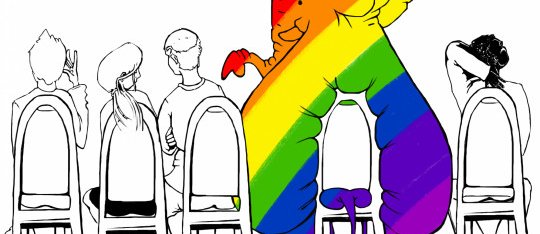
Find out more about the history of LGBTQ+ inclusion at Bloomsbury Central Baptist Church, and its place in the wider Baptist tradition.
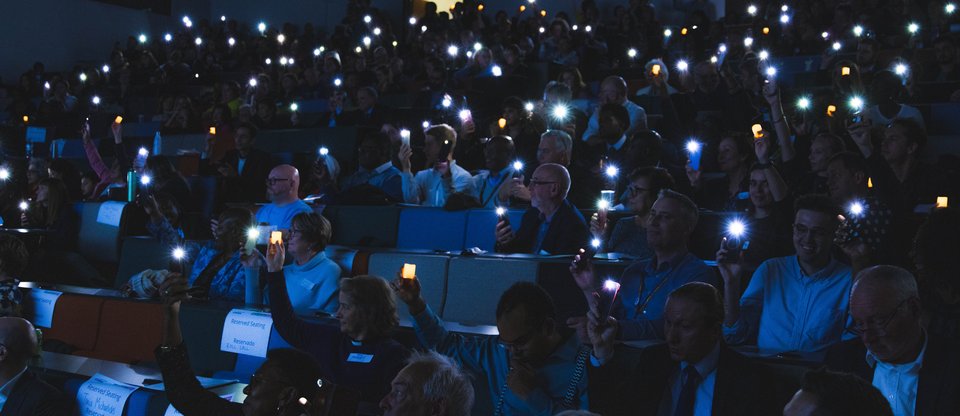
Our membership is made up of organisations like Bloomsbury Central Baptist Church - institutions that care about working with others for the common good. If you're a school, university, faith group, charity, union, or other community-rooted group, get in touch.




